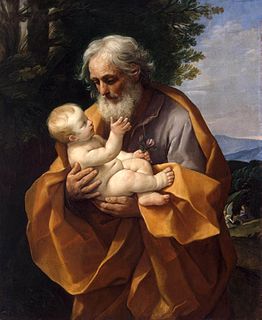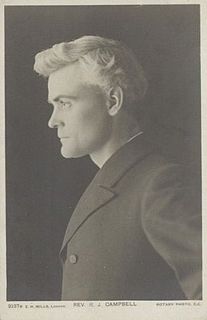A Quote by Archibald MacLeish
Man depends on God for all things: God depends on man for one. Without man's love God does not exist as God, only as creator, and love is the one thing no one, not even God himself, can command. It is a free gift or it is nothing. And it is most itself, most free, when it is offered in spite of suffering, of injustice, and of death . . . The justification of the injustice of the universe is not our blind acceptance of God's inexplicable will, nor our trust in God's love, his dark and incomprehensible love, for us, but our human love, notwithstanding anything, for him.
Quote Topics
Acceptance
All Things
And Love
Anything
Blind
Blind Acceptance
Command
Creator
Dark
Death
Depends
Does
Even
Exist
Free
Gift
God
God's Love
Him
Himself
His
Human
Human Love
Incomprehensible
Inexplicable
Injustice
Itself
Justification
Love
Love Is
Man
Most
Nor
Nothing
Notwithstanding
Offered
One Thing
Only
Our
Spite
Suffering
The One Thing
Thing
Things
Trust
Trust In God
Universe
Us
Will
Without
Related Quotes
Why pray? Evidently, God likes to be asked. God certainly does not need our wisdom or our knowledge, nor even the information contained in our prayers ("your Father knows what you need before you ask him"). But by inviting us into the partnership of creation, God also invites us into relationship. God is love, said the apostle John. God does not merely have love or feel love. God is love and cannot not love. As such, God yearns for relationship with the creatures made in his image.
By His gracious condescension God became man and is called man for the sake of man and by exchanging His condition for ours revealed the power that elevates man to God through his love for God and brings God down to man because of His love for man. By this blessed inversion, man is made God by divinization and God is made man by hominization. For the Word of God and God wills always and in all things to accomplish the mystery of His embodiment.
God’s love sets us free from the need to seek approval. Knowing that we are loved by God, accepted by God, approved by God, and that we are new creations in Christ empowers us to reject self-rejection and embrace a healthy self-love. Being secure in God’s love for us, our love for Him, and our love for ourselves, prepares us to fulfill the second greatest commandment: To love our neighbor as ourselves.
The problem of reconciling human suffering with the existence of a God who loves, is only insoluble so long as we attach a trivial meaning to the word "love", and look on things as if man were the centre of them. Man is not the centre. God does not exist for the sake of man. Man does not exist for his own sake. "Thou hast created all things, and for thy pleasure they are and were created." We were made not primarily that we may love God (though we were made for that too) but that God may love us, that we may become objects in which the divine love may rest "well pleased".
Feuerbach ... recognizes ... "even love, in itself the truest, most inward sentiment, becomes an obscure, illusory one through religiousness, since religious love loves man only for God's sake, therefore loves man only apparently, but in truth God only." Is this different with moral love? Does it love the man, this man for this man's sake, or for morality's sake, for Man's sake, and so-for homo homini Deus-for God's sake?
Clearly, what God wants above all is our will which we received as a free gift from God in creation and possess as though our own. When a man trains himself to acts of virtue, it is with the help of grace from God from whom all good things come that he does this. The will is what man has as his unique possession
God will never disappoint us… If deep in our hearts we suspect that God does not love us and cannot manage our affairs as well as we can, we certainly will not submit to His discipline. …To the unbeliever the fact of suffering only convinces him that God is not to be trusted, does not love us. To the believer, the opposite is true.
It is no strain of metaphor to say that the love of God and the wrath of God are the same thing, described from opposite points of view. How we shall experience it depends upon the way we shall come up against it: God does not change; it is man's moral state that changes. The wrath of God is a figure of speech to denote God's unchanging opposition to sin; it is His righteous love operating to destroy evil. It is not evil that will have the last word, but good; not sorrow, but joy; not hate, but love.
God notices you. The fact is he can't take his eyes off of you. However badly you think of yourself, God is crazy about you. God is in love with you. Some of us even fear that someday we'll do something so bad that he won't notice us anymore. Well, let me tell you, God loves you completely. And he knew us at our worst before he ever began to love us at all. And in the love of God there are no degrees, there is only love.
Loving a holy God is beyond our moral power. The only kind of God we can love by our sinful nature is an unholy god, an idol made by our own hands. Unless we are born of the Spirit of God, unless God sheds His holy love in our hearts, unless He stoops in His grace to change our hearts, we will not love Him... To love a holy God requires grace, grace strong enough to pierce our hardened hearts and awaken our moribund souls.
There are two gods. The god our teachers teach us about, and the God who teaches us. The god about whom people usually talk, and the God who talks to us. The god we learn to fear, and the God who speaks to us of mercy. The god who is somewhere up on high, and the God who is here in our daily lives. The god who demands punishment, and the God who forgives us our trespasses. The god who threatens us with the torments of Hell, and the God who shows us the true path.
There are two gods. A god who casts us off because of our sins, and a God who calls to us with His love.
The commandment of God is, that we love Our Lord in all our heart, in all our soul, in all our thought. In all our heart; that is, in all our understanding without erring. In all our soul; that is, in all our will without gainsaying. In all our their ought; that is, that we think on Him without forgetting. In this manner is very love and true, that is work of man's will. For love is a willful stirring of our thoughts unto God, so that it receive nothing that is against the love of Jesus Christ, and therewith that it be lasting in sweetness of devotion; and that is the perfection of this life.
God's unfailing love for us is an objective fact affirmed over and over in the Scriptures. It is true whether we believe it or not. Our doubts do not destroy God's love, nor does our faith create it. It originates in the very nature of God, who is love, and it flows to us through our union with His beloved Son.
There is no God separate from you, no God higher than you, the real "you." All the gods are little beings to you, all the ideas of God and Father in heaven are but your own reflection. God Himself is your image. “God created man after His own image." That is wrong. Man creates God after his own image. That is right. Throughout the universe we are creating gods after our own image. We create the god and fall down at his feet and worship him; and when this dream comes, we love it !







































